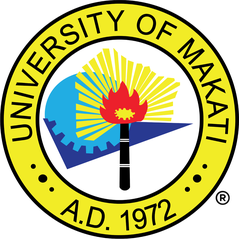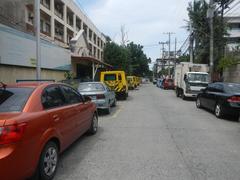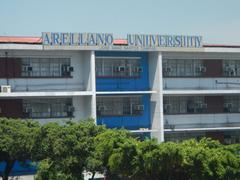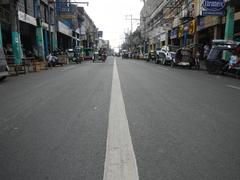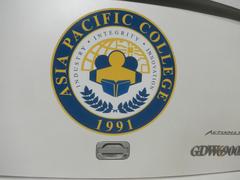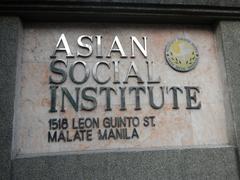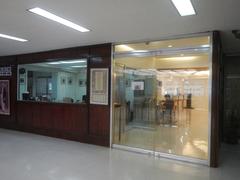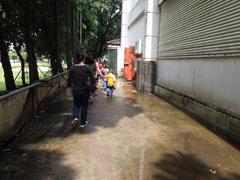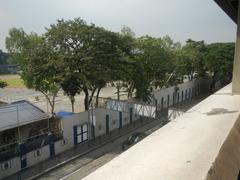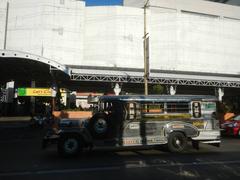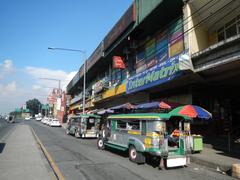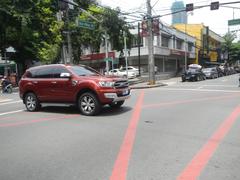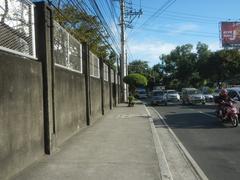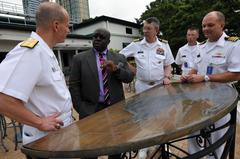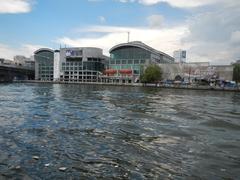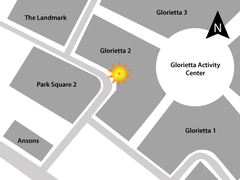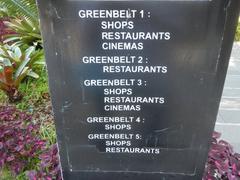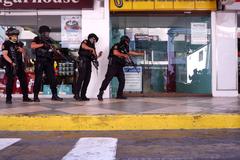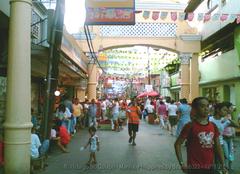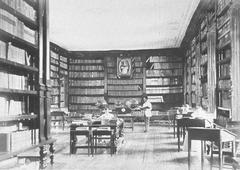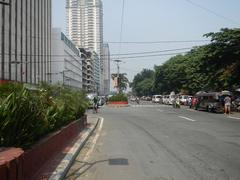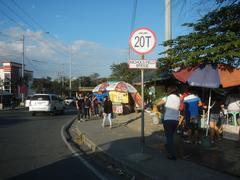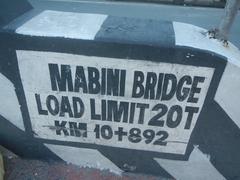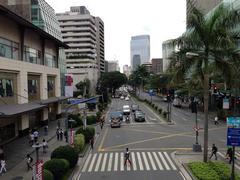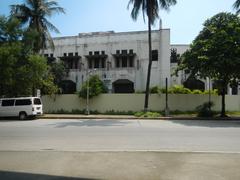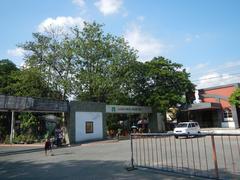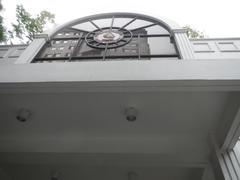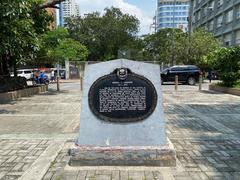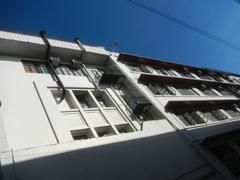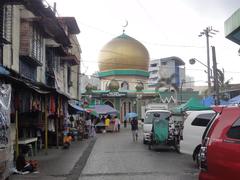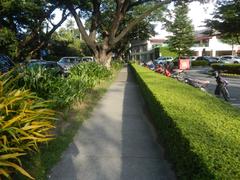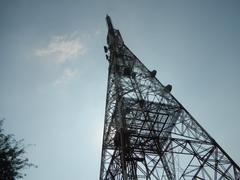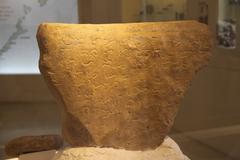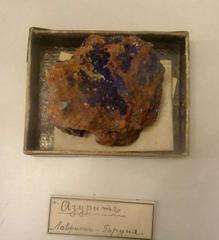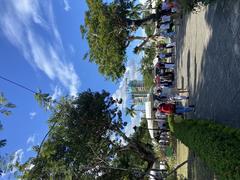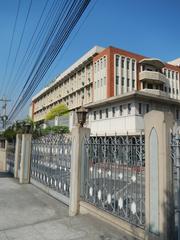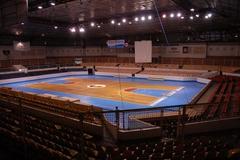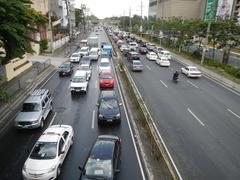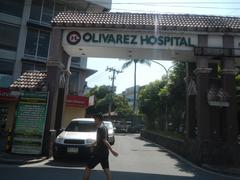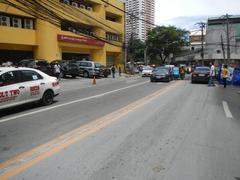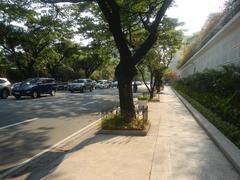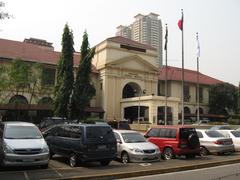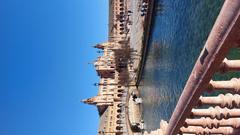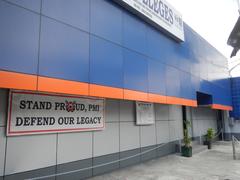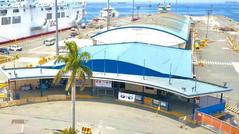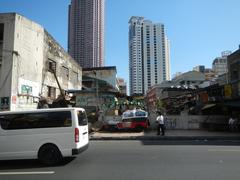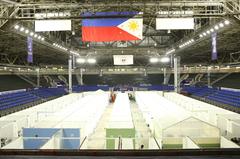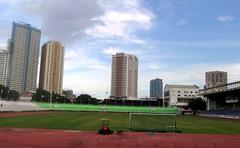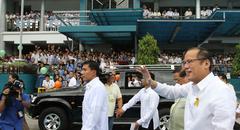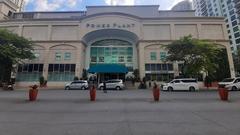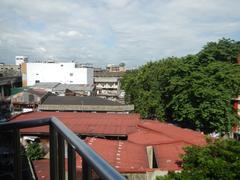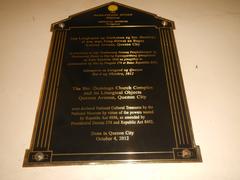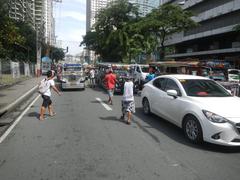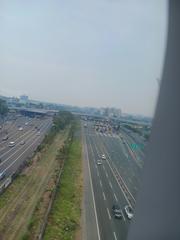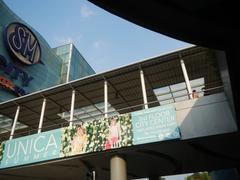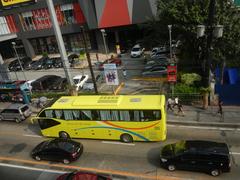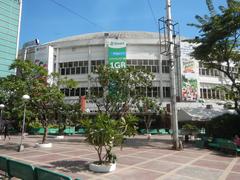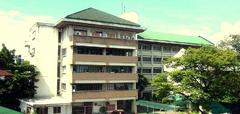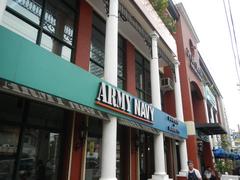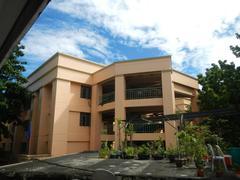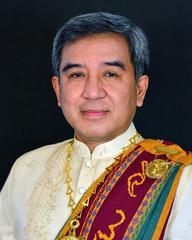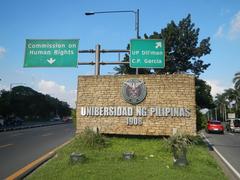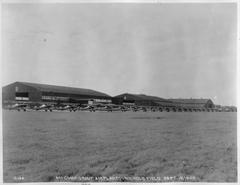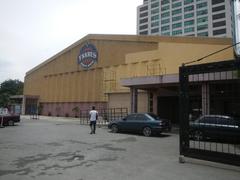
University of Makati Visiting Hours, Tickets, and Historical Sites Guide
Date: 14/06/2025
Introduction to the University of Makati: History and Significance
The University of Makati (UMak), established in 1972 as the Makati Polytechnic Community College, is a cornerstone of education and culture in the dynamic city of Makati, Metro Manila. Over the decades, UMak has mirrored Makati’s transformation from a modest locality into a thriving financial and cultural metropolis. More than an academic institution, UMak serves as a hub for community empowerment, social inclusion, and the preservation of local heritage, especially within the historic Poblacion district. Visitors to UMak have the unique opportunity to connect with the city’s vibrant history, experience modern educational facilities, and participate in diverse community-driven initiatives that underscore sustainable urban development and local traditions (Wikiwand; Agenda21Culture).
A highlight on campus is the University of Makati Monument, inaugurated in 2018. This monument pays tribute to the students, faculty, and alumni who have played significant roles in shaping both the university and the city. It stands as a symbol of accessible education and community progress. Open to the public daily with free admission, the monument and campus offer guided tours and special events that deepen visitors’ understanding of Makati’s educational and cultural heritage (University of Makati Monument Guide).
This comprehensive guide provides essential information for visitors, including opening hours, ticket details, accessibility, travel advice, nearby attractions, and insights into UMak’s cultural and community importance. Whether you are a student, tourist, or local resident, exploring UMak and its surroundings is a rewarding way to engage with Metro Manila’s rich history and dynamic present.
Table of Contents
- Introduction to the University of Makati
- About the University of Makati
- Visiting the University of Makati
- What to See and Do at UMak
- Accessibility and How to Get There
- Nearby Attractions
- University of Makati Monument
- Cultural and Community Impact
- Visitor Experience
- Travel Tips
- Frequently Asked Questions (FAQ)
- Visuals and Media Suggestions
- Call to Action
- Conclusion
About the University of Makati
UMak evolved from its beginnings as a community college into a leading university serving thousands of students in Metro Manila. Strategically situated at the heart of Makati—the nation’s premier financial district—the campus is surrounded by business centers, government offices, and cultural landmarks. Its mission extends beyond academic excellence, focusing on social progress, civic engagement, and the preservation of local identity (Wikiwand).
Visiting the University of Makati
Visiting Hours
- Weekdays: 8:00 AM – 6:00 PM
- Weekends/Holidays: Limited access; check the official UMak website for updates.
Admission and Tickets
- General Admission: Free
- Special Events/Exhibits: Some may require tickets or pre-registration.
Guided Tours
UMak occasionally offers guided tours during open campus days, cultural festivals, and academic fairs. These tours allow visitors to interact with students and faculty, providing a closer look at campus life. For group visits or special arrangements, contact the university’s visitor center in advance.
What to See and Do at UMak
- Cultural Events: Attend art exhibitions, public lectures, and performing arts shows scheduled throughout the year.
- Community Programs: Discover UMak’s outreach and urban development initiatives that benefit Makati’s communities.
- Campus Facilities: Explore state-of-the-art libraries, sports complexes, auditoriums, and the University of Makati Monument, each reflecting the institution’s dedication to education and civic engagement.
Accessibility and How to Get There
UMak is located along J.P. Rizal Extension, West Rembo, Makati City, and is accessible via:
- Public Transportation: Buses, jeepneys, and the Makati Green Route.
- Taxi and Ride-Hailing Services: Grab and other services are widely available.
- On Foot: Walking tours are popular within the Poblacion heritage district.
The campus is wheelchair accessible, featuring ramps, handrails, and accessible restrooms.
Nearby Attractions
Enrich your visit to UMak by exploring these nearby sites:
- Ayala Museum: A premier showcase of Philippine art and history (Ayala Museum Official Site).
- Greenbelt Park: Lush gardens, dining, and shopping in the heart of Makati.
- Guadalupe Ruins: Historic remnants offering a glimpse into early Makati.
- Makati Central Business District: Experience the city’s economic pulse and modern architecture.
- Ayala Triangle Gardens: Urban park with seasonal displays and open-air events.
University of Makati Monument
History and Cultural Significance
Inaugurated in 2018, the University of Makati Monument honors the institution’s legacy as a builder of the future and a vital contributor to Makati’s educational and civic landscape. The monument features detailed sculptures and plaques chronicling UMak’s evolution and the achievements of its academic community (Wikiwand; University of Makati Monument Guide).
Visiting Hours and Ticket Information
- Hours: 8:00 AM – 6:00 PM daily
- Tickets: Free admission
- Guided Tours: Arrange through the university’s visitor center; advance booking recommended for groups.
Location and Directions
The monument is within UMak’s main campus at J.P. Rizal Extension, West Rembo, Makati. Public transport and ride-hailing options make it readily accessible.
Nearby Historical Sites and Attractions
- Ayala Museum
- Guadalupe Ruins
- Greenbelt Mall
Accessibility
The monument and campus are designed for inclusivity, with accessible paths, parking, and facilities.
Special Events and Guided Tours
The university hosts commemorative ceremonies, workshops, and cultural performances at the monument. Guided tours offer insights into the monument’s significance and UMak’s role in Makati’s development.
Photographic Spots and Visitor Experience
Enjoy landscaped gardens and architectural backdrops ideal for photography. Virtual campus tours and high-quality images are available on the university website, with alt tags such as “University of Makati Monument daytime view” and “Historical plaques at UMak Monument.”
Cultural and Community Impact
Role in Local Heritage and Identity
UMak stands as a symbol of Makati’s dedication to accessible, community-focused education and heritage preservation. Its proximity to the historic Poblacion district allows for active participation in local heritage projects, such as the Makati Poblacion Heritage Conservation Project, which integrates cultural preservation with urban development (Agenda21Culture).
Social Inclusion and Community Engagement
UMak champions social inclusion by providing affordable education and partnering with local schools, enhancing opportunities for underserved groups. The university fosters participation from diverse community members, including women and LGBTQ+ individuals, in cultural and heritage activities (Wikiwand; Agenda21Culture).
Economic and Urban Development Impact
UMak supports local economic vitality by promoting cultural tourism and supporting small businesses. Its modern facilities serve as venues for community sports, events, and educational programs, contributing to the vibrancy and inclusivity of Makati (Wikiwand).
Cultural Preservation and Innovation
The university actively blends technology with tradition, ensuring that cultural rituals remain relevant while honoring their origins. Its commitment to sustainable, community-centered tourism and heritage projects promotes resident ownership and pride (Agenda21Culture).
Visitor Experience
Campus Environment and Accessibility
UMak’s campus is well-integrated into the city, with accessible transportation options and sustainable mobility initiatives like the Makati Green Route. Key facilities include academic buildings, a stadium, the Makati Aqua Sports Arena, and landscaped green spaces (Wikiwand; TravelTriangle).
Practical Visitor Information
- Registration: All visitors must register at the main gate.
- Restricted Areas: Some academic buildings may have limited access.
- Transport: Utilize public transport or ride-hailing; parking may be limited.
Engaging with Local Culture
Experience local celebrations, such as Holy Week processions and barangay fiestas, especially in the Poblacion district. UMak also hosts public lectures, art exhibits, and performances that highlight Makati’s cultural vibrancy.
Navigating the Makati–Taguig Territorial Context
UMak is located in an area subject to a territorial dispute between Makati and Taguig. Despite legal developments, the Makati city government continues to administer the area as of 2023. This does not affect visitor access but illustrates the city’s evolving administrative context (Wikiwand).
Community-Focused Tourism
Support local artisans, businesses, and cultural projects during your visit. The Makati Poblacion Heritage Conservation Project encourages sustainable tourism that benefits residents and preserves the city’s unique identity (Agenda21Culture).
Safety and Sustainability
Makati is known for its safety, clean public spaces, and commitment to sustainability. Use public transport, reduce waste, and respect local customs and guidelines.
Travel Tips
- Check event schedules on the UMak website before visiting.
- Dress appropriately for campus and cultural events.
- Bring identification for campus registration.
- Use public transport or ride-hailing for convenience.
- Stay hydrated and protect yourself from the sun.
Visuals and Media Suggestions
- Include high-resolution images of the UMak campus, monument, and nearby attractions with descriptive alt tags.
- Embed interactive maps pinpointing UMak and key landmarks.
- Feature virtual tour videos from UMak’s official channels.
Frequently Asked Questions (FAQ)
Q: What are the University of Makati visiting hours?
A: The campus is open to visitors from 8:00 AM to 6:00 PM on weekdays. Some facilities may close earlier.
Q: Is there an entrance fee to visit UMak or the monument?
A: No, both the campus and monument are free to visit. Some special events may require tickets.
Q: Are guided tours available?
A: Guided tours are occasionally offered, especially during special events or by advance arrangement.
Q: How can I get to UMak by public transport?
A: Take buses or jeepneys to J.P. Rizal Extension, or use the Makati Green Route. Ride-hailing services are also available.
Q: Is the campus accessible to persons with disabilities?
A: Yes, all main areas are wheelchair accessible, with ramps and designated facilities.
Q: What other sites can I visit nearby?
A: Ayala Museum, Greenbelt Park, Guadalupe Ruins, and the historic Poblacion district are all nearby.
Call to Action
Ready to explore the University of Makati and its dynamic surroundings? Download the Audiala app for interactive maps, guided tour schedules, and the latest event updates. Follow us on social media for exclusive insights, travel tips, and stories about Makati’s heritage. Share your experiences using #UMakMonumentVisit and inspire others to discover this vibrant part of Metro Manila!
For more details about UMak and local heritage, visit the official Makati city website, the University of Makati Official Site, or explore further on Wikiwand and Agenda21Culture.
Summary and Final Recommendations
The University of Makati and its monument are essential destinations for anyone seeking to understand Metro Manila’s educational and cultural landscape. With free admission, accessible facilities, and a diverse array of cultural activities, UMak invites visitors to immerse themselves in Makati’s story of growth, resilience, and community spirit. Enhance your visit by exploring nearby attractions, supporting local initiatives, and participating in events that celebrate the city’s heritage and innovation.
Stay informed by consulting official resources and mobile apps like Audiala to make the most of your visit. The University of Makati stands as a beacon of education, culture, and community—welcoming everyone to experience its rich legacy within the heart of Metro Manila (Wikiwand; Agenda21Culture; Makati Tourism Office).

